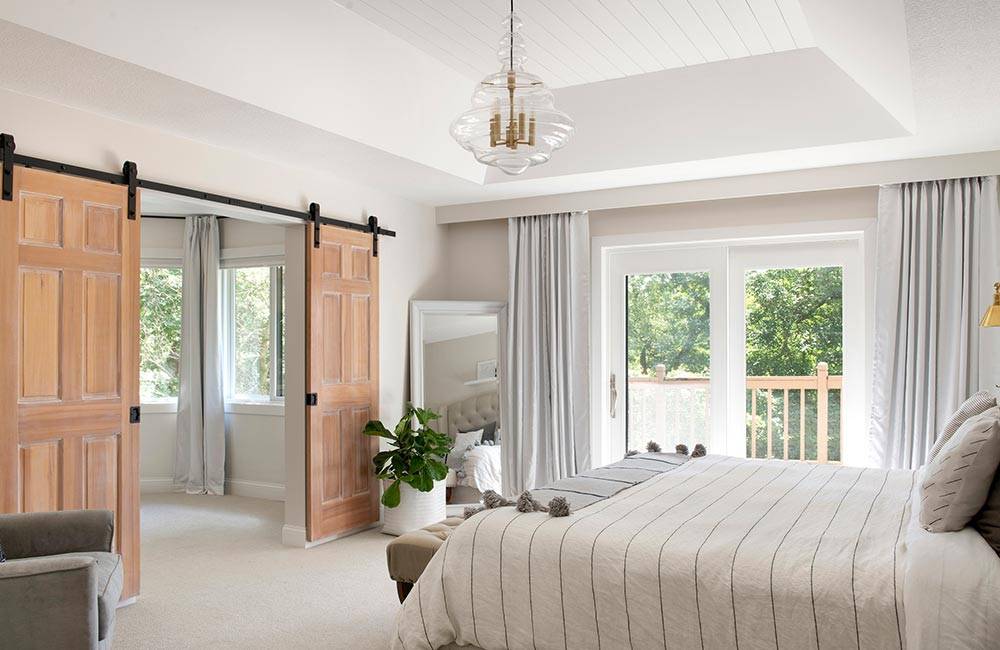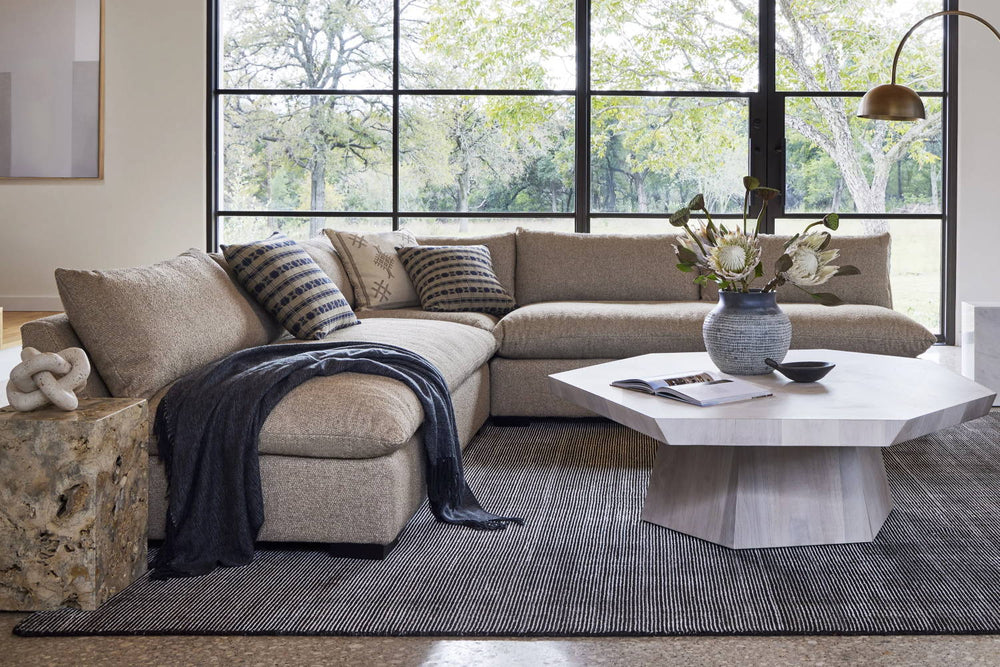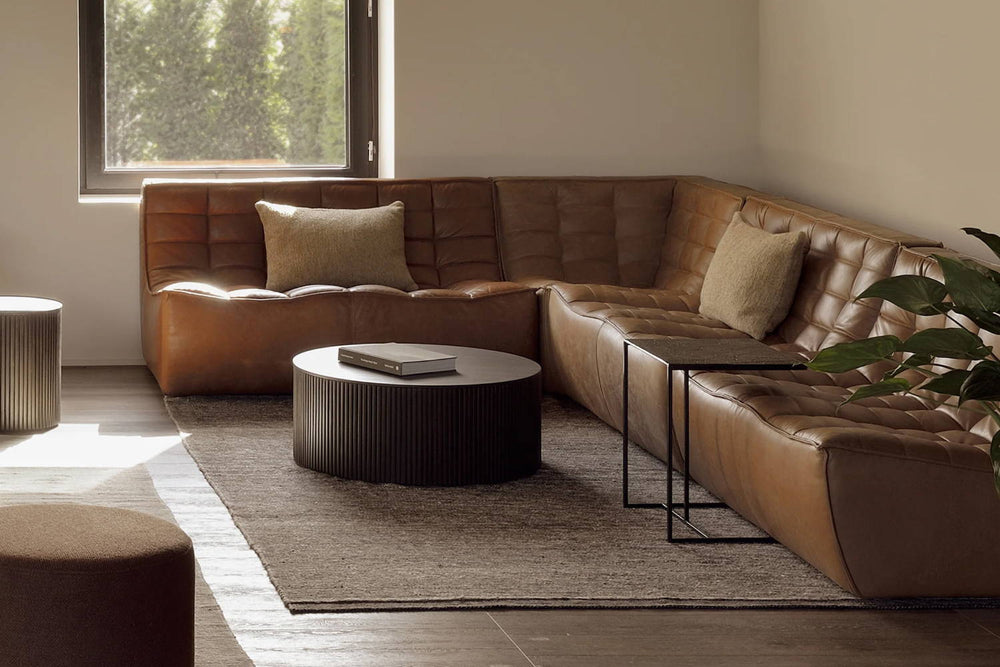Lucy Round Dining Table by Four Hands
In a world where modern lifestyles are constantly evolving, the question of whether you truly need a dining room table has become more relevant than ever. As our homes adapt to the demands of our fast-paced lives, traditional concepts of dining and entertaining have undergone a remarkable transformation. In the past, the dining room table was the epicenter of family gatherings and formal meals, a symbol of togetherness and tradition. However, contemporary living trends are shifting towards more flexible and multifunctional spaces. With the rise of open-concept living areas and smaller homes, the dining room table's role seems to be evolving. Many now question whether dedicating a significant portion of their living space to this furniture piece is practical or if alternative solutions can better serve their needs. In this guide, we will delve into the changing dynamics of how we gather, dine, and connect in our homes, challenging the conventional wisdom of the dining room table's necessity.
Mineral Dining Table by Ferm Living
Is a Dining Table Actually Necessary?
The necessity of a dining table in your home depends on various factors, including your lifestyle, space constraints, and personal preferences. Here are some considerations to help you decide whether a dining table is essential for your living situation:
- Lifestyle: Do you frequently host formal dinners or enjoy family gatherings around the dining table? If communal dining is an integral part of your lifestyle, a dining table may be essential to accommodate these activities
- Space: If you live in a small apartment or have limited space, you might need to prioritize space-saving solutions. In such cases, alternative dining arrangements like bar counters, fold-down tables, or multifunctional furniture can be more practical
- Flexibility: Are you looking for a flexible living space that can adapt to different purposes? In open-concept homes, you can create multifunctional areas that serve as dining spaces when needed but can also be repurposed for work, entertainment, or other activities
- Aesthetics: The presence of a dining table can contribute to the overall aesthetics and ambiance of your home. If you appreciate the traditional look and feel of a dining area, it may be a worthwhile addition for you
- Cultural and Family Traditions: Cultural and family traditions often play a significant role in the decision to have a dining table. If your culture or family places importance on formal dining rituals, a dining table may be integral to preserving these customs
It's essential to assess your lifestyle, available space, and personal preferences when making this decision. Many modern homes are adapting to new living trends, which may or may not include a traditional dining table. Ultimately, the choice should align with your lifestyle and how you envision using your living space.
Abaso Coffee Table by Four Hands
If You Live in a Small Space, You Can Nix the Dining Room Table
If you live in a small space, like a one bedroom or studio apartment, space is at a premium. In terms of square footage, a dining set – even one with a relatively small table – has a pretty big footprint You can nix the dining room table if you:
- Aren’t likely to use it
- Aren’t likely to want one for anything like dinner parties with guests or similar
- If you do have the space, though, it’s a good idea to have a table available as an option if you ever do want to use it – even if you’re not likely to eat at it every day
- Dining tables can also be multipurpose and used for other activities, so could still have some utility for you, depending on your home’s size and layout
Michel Cafe Table by Sika Design
If I Do Want a Table, How Can I Make the Most of a Small Dining Area?
Get a relatively small dining table.
- Bistro tables are an ultra-compact option, good for singles or couples/smaller households
- Don’t get more table than you realistically need – if you live alone and seldom have guests for dinner, you probably don’t need a table that can comfortably seat eight people
Go for an oval or round table.
- Helps maximize space for seating people, more compact than quadrangular tables
- Look for modern tables with expandable leaves or folding sides to accommodate guests when needed
- Invest in multi-functional furniture. Look for dining tables that double as work desks or storage units with built-in seating
Consider using benches in lieu of chairs.
- Maximizes seating space, wasting less space overall
- Reduces bulk, creating a visually light space
- Storage benches can act as a convenient spot to keep dishes, flatware, napkins and more out of sight
Torsion Dining Table by Ethnicraft
For some, the dining room table remains an essential hub for family gatherings, fostering cherished traditions and a sense of togetherness. It symbolizes a place for shared meals and conversations that extend beyond nourishing the body to nourishing the soul. However, for others, the flexibility and space optimization offered by alternative solutions, like breakfast bars, multifunctional furniture, or communal living areas, align more closely with their dynamic lifestyles. These alternatives cater to the changing needs of modern families and individuals, adapting seamlessly to diverse daily routines. Ultimately, the dining room table's place in your home is a reflection of your values and how you envision your living space. Whether you choose to embrace tradition or embrace innovation, the key is to create a space that nurtures connection and complements your way of life. So, in the end, the decision isn't about whether you need a dining room table, but rather about what kind of space you want to call home.








